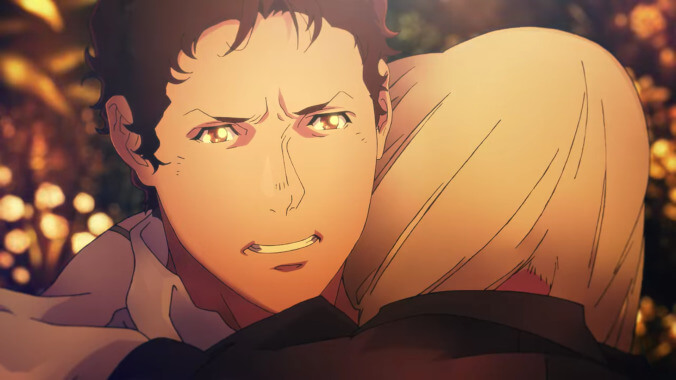Mobile Suit Gundam Hathaway reckons with the privilege of being the protagonist
Heroism is thrust upon a lot of people in sci-fi stories, but Hathaway actually gives its main character a choice

Mobile Suit Gundam Hathaway, available now on Netflix after a COVID-delayed theatrical release in Japan earlier this year, is a follow-up movie to the original Mobile Suit Gundam anime and a fairly direct sequel to the extremely lore-heavy Char’s Counterattack (also on Netflix now). Surprisingly, little of that matters. You don’t really need to know much about Char Aznable, because the one shot of him in a dramatic military uniform making a speech tells you exactly the kind of guy he was. You also don’t need to know why most of the movie takes place in Southeast Asia and why there’s a big hole in Australia. Hell, you don’t even need to know what a Gundam is, because once the first one shows up and thoroughly wrecks everything, it’s clear that Hathaway’s version of big robots aren’t cool friends or toys, they’re goddamn nightmares.
The one thing you do need to know going into this movie is basically common knowledge: Because of their wealth or celebrity or just their whiteness, certain people can get away with anything. Hathaway relegates the sci-fi politics and robot action to the background, a rare move even for a series that tries as hard to be “about” something as Gundam does. And that’s because the film’s real concern is forcing its hero, Hathaway Noa, to recognize the privilege he carries in even getting to be the hero. Noa, the son of a major character from Mobile Suit Gundam, is willing to do whatever it takes to change the world. But it’s not until a key point in the movie that he realizes that he could just give up, go home, and live a particularly cushy life and nobody would ever notice or care… which he actually considers doing. Hathaway, in other words, reckons with privilege in a way that action movies like this rarely (if ever) do.
Unlike most Gundam heroes, Hathaway isn’t a soldier or a good man in a corrupt system. He’s a full-on terrorist, secretly fighting under the name Mafty Navue Erin to undermine the global Earth government; his goal is force everyone into space colonies so the Earth can recover from all of the damage that people have done to it. (Remember that hole in Australia?) For the first half of the movie, we’re meant to take it on faith that he’s doing The Right Thing, that he has the support of the common man, and that his father’s status as a highly respected military commander and war hero is a burden that complicates his mission. He’s fighting a tyrannical government for the good of the planet! Who could possibly object to what he’s doing? The key point where Hathaway’s attitude changes doesn’t happen in a battle scene or during an overly dramatic screaming match. It occurs when a slightly bored Hathaway gets in a cab to sneak away from some overzealous cops (“Hunters”) and get back to his comically lavish high-rise hotel—provided to him by the very government he’s planning to destroy. Here’s the conversation in full:
Driver: The Hunters here are bad, aren’t they? It’s always like this. I wonder why Mafty doesn’t strike back.
Hathaway: You’re right. They should be taken out with the trash.
Driver: He’s too eggheaded, though. He’s trying to get everyone up into space, right? That, I don’t understand. The environment in Davao isn’t that polluted.
 Keep scrolling for more great stories.
Keep scrolling for more great stories.
